51 F. high Wednesday in the Twin Cities.
62 F. average high for April 24.
73 F. high on April 24, 2012.
Trace of snow left on the ground at MSP International Airport.
67.2" snow so far this winter. Quite enough.
22.3" snow fell last year, as of April 24.
Risk of Spring
I've seen a lot of head-shaking weather in my 30
years in Minnesota. Little surprises me anymore. Until this week. 51"
of snow at Duluth. In April? Snowiest month ever recorded; two times
what fell all last winter in the Twin Cities - even more than during the
November, 1991 "Halloween Superstorm". Unreal.
Like you, I'm turning the page on winter. I just
removed my driveway stakes (latest on record) & hauled my heaviest
coats and sweatshirts into cold storage. I'm as ready for spring as
everyone else.
Southwest winds at all levels of the atmosphere
boost the mercury to 50F today, 60s on Friday; a good chance of low 70s
by the weekend. 5" snow on a Monday - sunscreen and shorts 5 days later?
Sounds about right.
A stray shower is possible Friday, heavier rain may return to Minnesota Tuesday as cooler air approaches.
Twin Cities National Weather Service Chief Dan
Luna is still predicting significant flooding for the Fargo area, but he
adds: "Without a significant precipitation event triggering a basin
wide melt, and the fact that some water has infiltrated the soils, the
potential for record flooding decreases significantly south of the Grand
Forks."
If you live in an area that is flood-prone,
especially during spring snowmelt season, you'll want to stay alert over
the next 1-2 weeks.
A Real Warm Front. The first 70F high since October
21, 2012? I'm ready - I'm sure you are too. All the models show warming
into early next week; low 70s possible Saturday, possibly mid-70s
Sunday. The ECMWF model prints out over 1" of showers and T-storms from
late Sunday into Tuesday of next week as a cooler front approaches.
Dry Spell Into Sunday - Significant Rain Next Week?
It's early, but some of the models are hinting at cyclogenesis along an
advancing cool front next Tuesday and Wednesday. It's too early to know
how (or even whether) this will impact snow melt and the crest of the
Red River.
Cue Spring. A mild, relatively dry Pacific flow will
boost the mercury about 35-40 degrees by Saturday and Sunday, when
highs top 70 for the first time since late October. A wave of low
pressure may spin up along an eastbound cool front by Tuesday of next
week, potentially heavy showers and T-storms. GFS loop: NOAA.
A Global
Perspective. Cold and
late-April drifts outside your window means worldwide warming is a joke,
right? Not so fast. Unless you can see the entire Earth from your
backyard window you might not want to jump to conclusions. Here is
today's edition of
Climate Matters, courtesy of WeatherNation TV: "
April
has been chilly, 3 times more cold weather records than warm weather
records. But how about the big picture? Meteorologist Paul Douglas
looks at the temperature trends over the past 365 days."
Worst Of Midwest Flood May Not Be Over. More details from
USA Today: "
Many
tributaries of the Mississippi and Ohio rivers are forecast to reach,
surpass or remain at major flood stage over the next several days. As
of late Monday afternoon, more than 150 gauges were in flood stage
across the USA, almost all of them in the upper Midwest."
*
Floods To Sideline Mississippi River Barges At Least Another Week. Reuters has the story
here.
Can Just Anyone Claim To Be A TV Meteorologist? Here's an excerpt of a
New York Times Magazine
response to a question about meteorological credentials. For the
longest time the term "meteorologist" referred to someone who completed
at least a 4-year Bachelor of Science degree. Now the term has become a
bit murkier: "...
According to the American Meteorological Society, a
meteorologist, is “an individual with specialized education who uses
scientific principles to observe, understand, explain or forecast
phenomena in Earth’s atmosphere and/or how the atmosphere affects Earth
and life on the planet.” The organization also says that those working
in a professional capacity without formal education are merely
“weathercasters.” But they add this caveat: “There are cases where an
individual has not obtained a degree in meteorology or atmospheric
science but has gained sufficient knowledge through coursework and/or
professional experience to successfully fill professional positions. . .
. These individuals can also be referred to as meteorologists.” This
is where we get into trouble. At what point does the professional
experience of being a lowly weathercaster transmogrify someone into a
full-on meteorologist? It seems possible to put yourself in a position
where referring to yourself as a meteorologist is technically accurate
but actively misleading. And this gets to the crux of your query..."
The Photorealistic Atmosphere In Google Earth 7.1.
This is pretty cool - if you use Google Earth now you can simulate what
the atmosphere really looks like, based on sun angle, visibility and
other parameters. Here's an excerpt from
gearthblog.com: "...
The
new feature is still being tested and may be a bit buggy, but can be
enabled on your computer right now if you go to [Tools] –> [Options]
–> “Use photorealistic atmosphere rendering“. To get a view similar
to the image above, you need to do a few things. First, of course,
enable the photorealistic atmosphere. Next, you’ll need to turn on the
sun by using the [View] –> “Sun” option (or by clicking the sun
icon at the top of the screen). Lastly, to enable the sun to reflect
on the water you’ll need to have the water surface enabled by going to
[View] –> “
Water Surface“...
The Changing Face Of News After Boston. We've gone
from a media speech to a conversation. Twitter was especially powerful
and timely during the horrific events that unfolded last week in Boston.
Here's an excerpt from a story at The
San Jose Mercury News: "...
But
tweets coming from inside the police lines captured the essence and
color of the breaking news, from officers in a dozen jurisdictions
searching through backyards, police cars screaming through the night,
explosions and a ferocious shootout in a normally placid residential
neighborhood. Others -- not professional journalists, necessarily --
were mesmerized by what was coming over the police scanners and posted
whatever they were hearing on Twitter. "If you want to know what
happened in #watertown 5 hours ago, turn on TV," read one tweet during
that time. "If you want to know what's going on now, turn on Twitter."
As Mark Little -- CEO of the digital news platform Storyful -- wrote in
the aftermath, it was "a world where everyone is an eyewitness, where
reporters no longer control the first draft of history." The way
coverage of the story developed, it was clear that a Rubicon had been
crossed, and we were in a new world of news. .."
The Fun And Games Are Over. Even The Internet Has To Make A Living.
Or as I like to say, if the product or service is "free" - YOU are the
product (they're selling your interests, preferences and likes to
advertisers, etc). Here's an excerpt of an interesting article at
Quartz: "...
Since
the birth of the commercial web in the mid-1990s, Silicon Valley has
been somewhat torn between the freewheeling culture of free services
(as in ad-supported), free code (as in open source, thought this needs a large asterisk beside it), and even freemium
business models (“come for the low-end product, stay and pay for the
extended version”). One of the fundamental pillars of its growth has
been the idea that fun things can make money, eventually. But, as you
may have noticed, like a timeshare pitch where no one is buying, the
free snacks and drinks and nights in a beachside condo are being taken
away. Google raised a stink by sunsetting its apparently popular free Reader RSS service (I was one who yelled, using it daily), Twitter has continued pulling back connections
that other services used in favor of its own, even announcing it is
killing off most versions of its own client in TweetDeck, which it
bought in 2011, on May 7.
And aside from the revocations, companies are getting testier about
their own products, hesitant to lose control or be seen as frivolous
(read: unprofitable) by investors and shareholders..."
Photo credit above: "
Are products like Google Glass freeing our world, or shackling it further?" AP Photo/Paul Sakuma.
World's "Greenest Commercial Building" Opens In Seattle.
Gizmag.com has the details - here's an excerpt: "
The
world of architecture figuratively doffed its cap to Earth Day on
Monday with the opening of the Bullitt Center in Seattle. The Bullitt
Center aims to meet the rigorous Living Building Design Challenge, which
looks beyond design criteria and scrutinizes a building's green
credentials, including energy self-sufficiency, over the course of a
year in use. But more significantly, its developers claim that the
Bullitt Center is the greenest commercial building in the world..."
Photo credit above: "
An aerial view of the Bullitt Center, rooftop solar array under construction, September 2012." (Photo: John Stamets).
Heading In The Right Direction. The sun was out most
of the day yesterday, a sun angle as high in the sky as mid-August,
melting a lot of snow. Before some late-day showers (mixed with a little
wet snow) highs peaked at 40 in Alexandria, 49 St. Cloud, 51 Twin
Cities and 52 at Eau Claire.
TODAY: Lots of sunshine, dry sky. Winds: SW 10. High: near 50
THURSDAY NIGHT: Partly cloudy. Low: 40
FRIDAY: Early sprinkle, then clearing, mild. Finally....spring! High: 67
SATURDAY: Generous sun. Hints of May. Wake-up: 46. High: 71
SUNDAY: Warm sun, nighttime T-storm? Wake-up: 52. High: 74
MONDAY: Some sun, passing T-shower. Wake-up: 54. High: 71
TUESDAY: More numerous showers, T-storms. Wake-up: 56. High: near 70
WEDNESDAY: Lingering clouds, turning cooler. Wake-up: 47. High: 51
Climate Stories....
Cartoon credit:
rhymeswithorange.com.
Pockets Of Cold In A Warming World. Here's a good explanation of the difference between weather and climate from
NOAA's Climate Division. It's tempting to look out the window and make global implications, but (stating the obvious) it's a little short-sighted: "
On
any given day or any given month, somebody somewhere experiences
colder-than-average temperature, even though the globe as a whole is
warmer than average. We know this through climate monitoring, which
entails measuring temperature on land and across the ocean."
Ratio Of Record Highs to Record Lows Since 1993.
2012 was off-the-charts warm; more than 5 times more record highs than
record lows across the USA. But that's been the trend since 1994. We've
gotten off to a chilly start - we'll see if that trend lingers for the
entire year. Graphic credit
here.
Why Is Reuters Puzzled By Global Warming's Acceleration?
There have been some misleading headlines in major publications in
recent weeks, including The Economist and Reuters. Here's some
perspective from
The Guardian: "
The
rate of heat building up on Earth over the past decade is equivalent
to detonating about 4 Hiroshima atomic bombs per second. Take a moment
to visualize 4 atomic bomb detonations happening every single second.
That's the global warming that we're frequently told isn't happening.
There are periods when the ocean heats up more quickly than the
surface, and other periods when the surface heats up more quickly than
the oceans. Right now we're in a period of fast ocean warming and
overall, global warming is continuing at a very fast pace. The confusion
on this subject lies in the fact that only about 2 percent of global
warming is used in heating air, whereas about 90 percent
of global warming goes into heating the oceans (the rest heats ice and
land masses). But humans live at the Earth's surface, and thus we
tend to focus on surface temperatures. Over the past 10–15 years,
Earth's surface temperature has continued to rise, but slowly. At the
same time, the warming of the oceans – and the warming of the Earth as a
whole – has accelerated..."
Image credit above: "
Oceans, such as the Pacific pictured here from space, are absorbing much of the warming the planet is currently experiencing." NASA/ Roger Ressmeyer/ Corbis.
The Truth About Global Warming's Famous "Slowdown". Greg Laden has more at
scienceblogs.com: "Dana Nuccitelli writes: "
The
rate of heat building up on Earth over the past decade is equivalent
to detonating about 4 Hiroshima atomic bombs per second. Take a moment
to visualize 4 atomic bomb detonations happening every single second.
That’s the global warming that we’re frequently told isn’t happening."
That’s Dana’s opening paragraph in the inaugural blog post in a new
two-person blog called Climate Consensus – The 97% which started up
today at The Guardian. The other blogger is my friend John Abraham..."


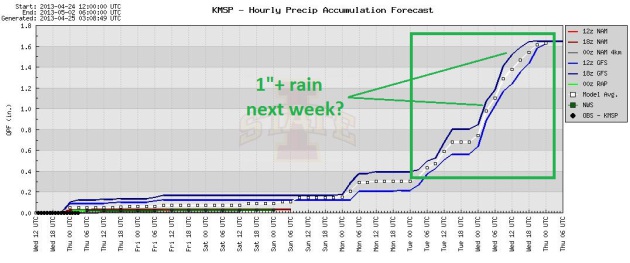
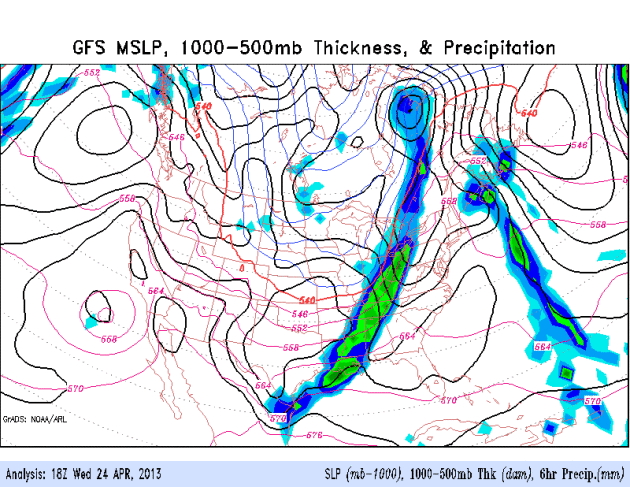
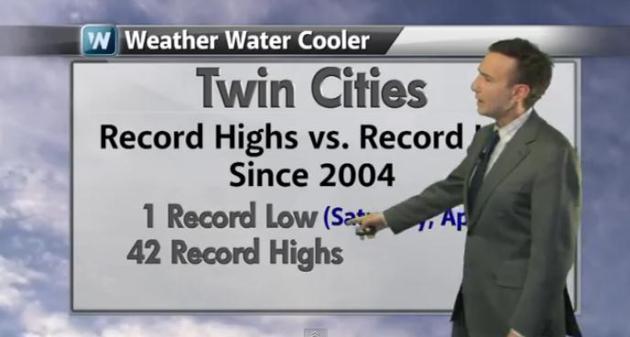
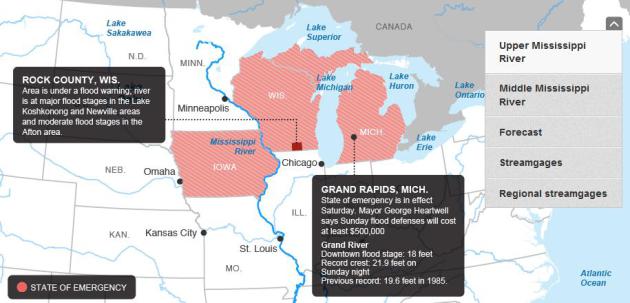
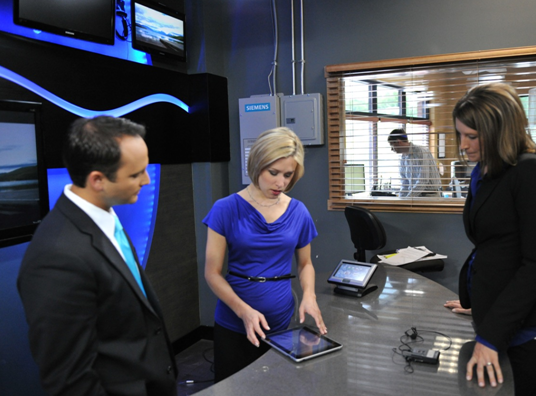
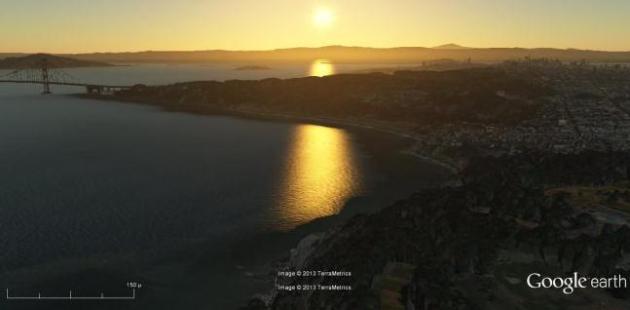

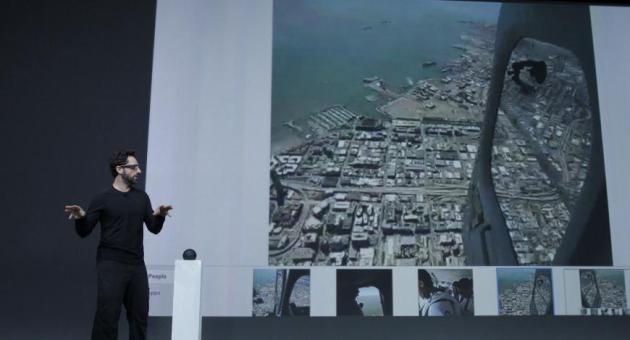
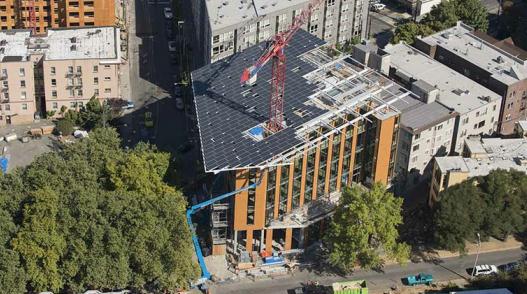
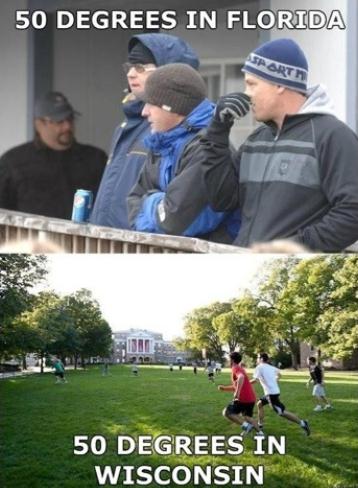


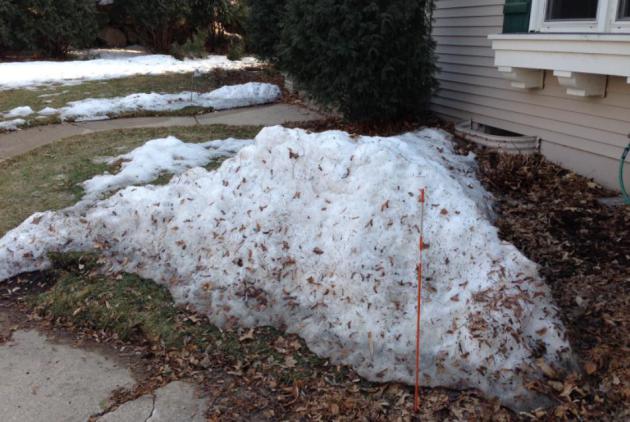


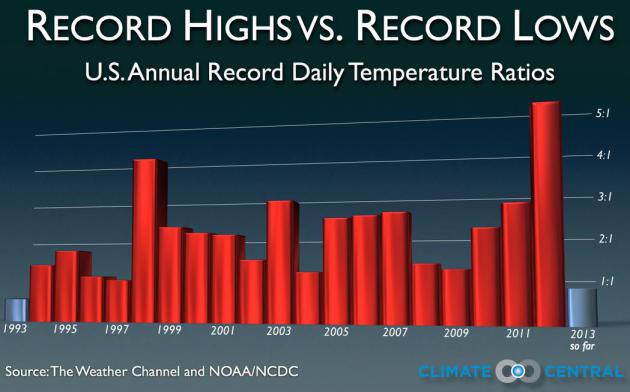
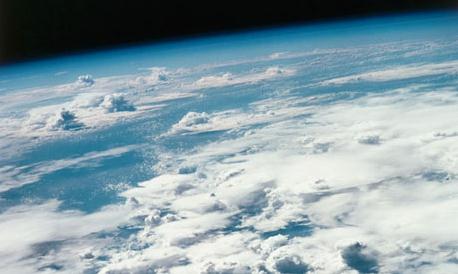

No comments:
Post a Comment